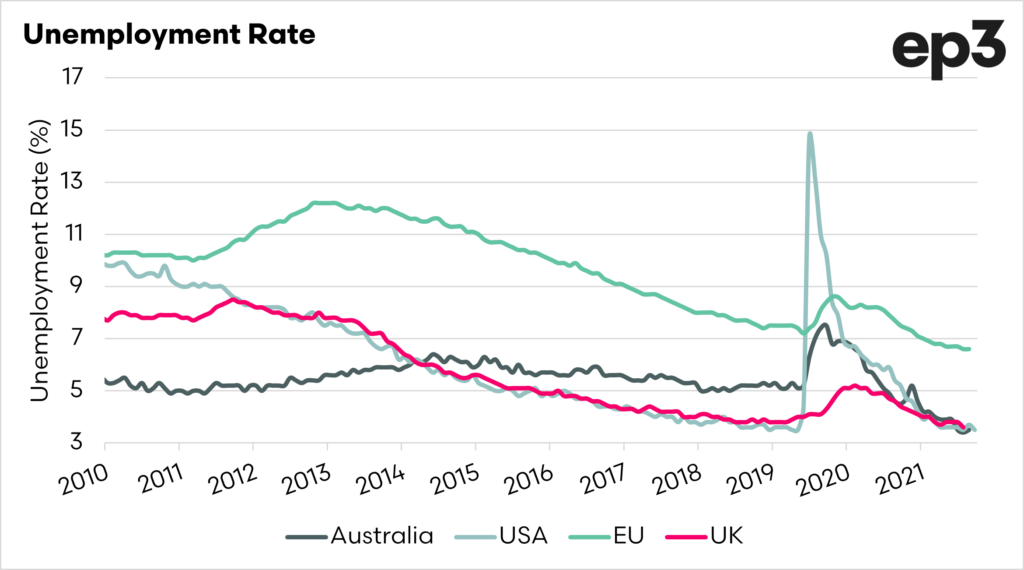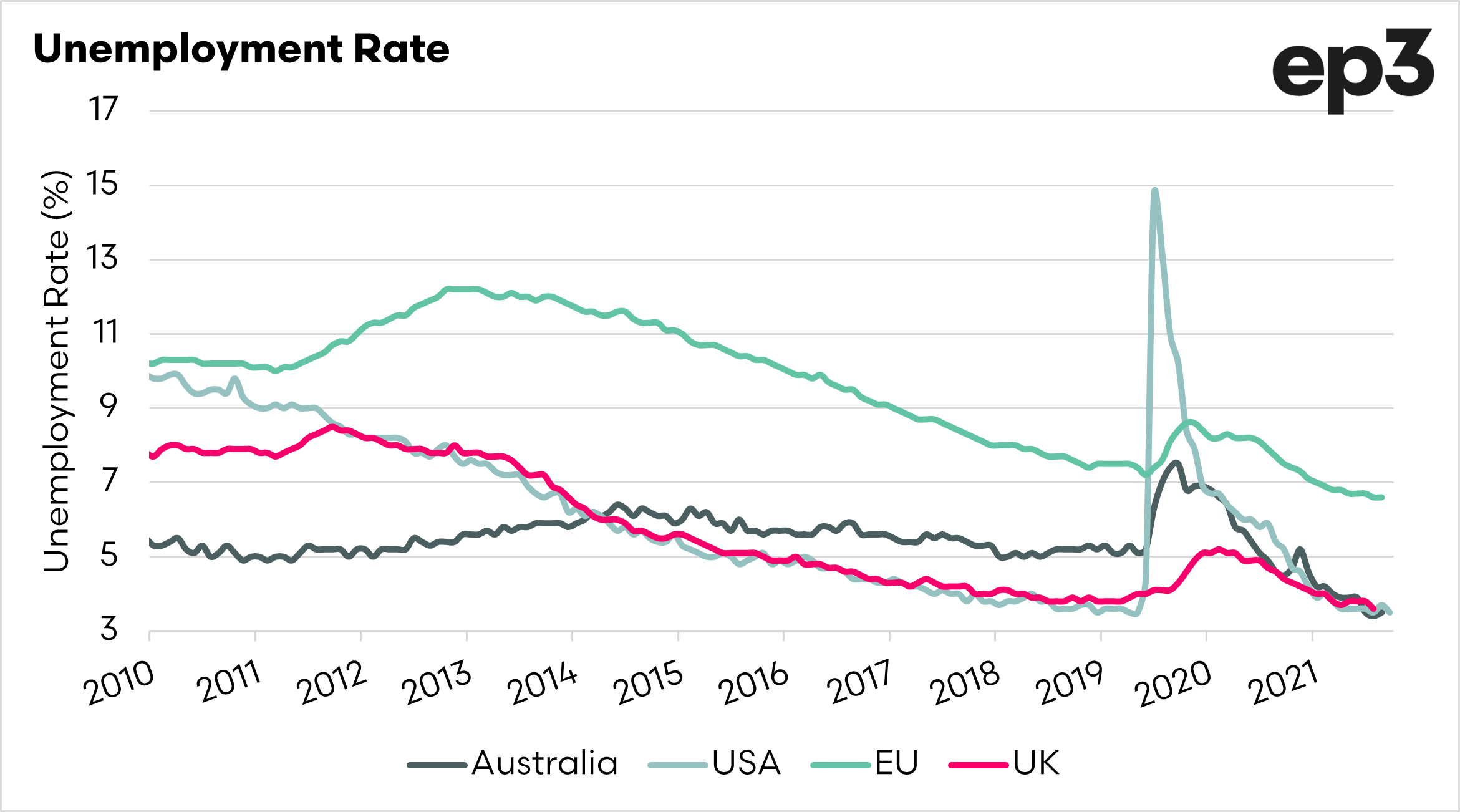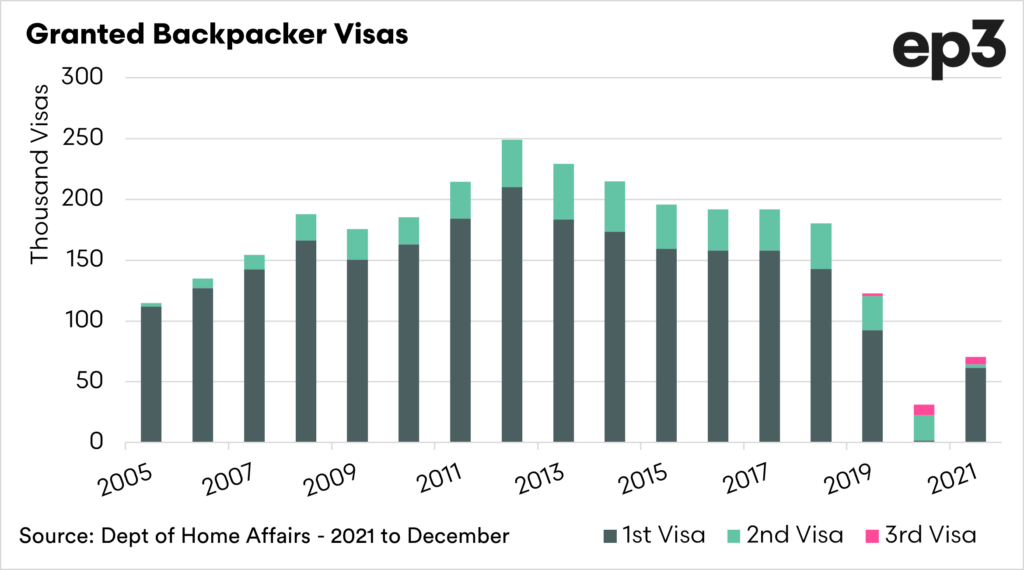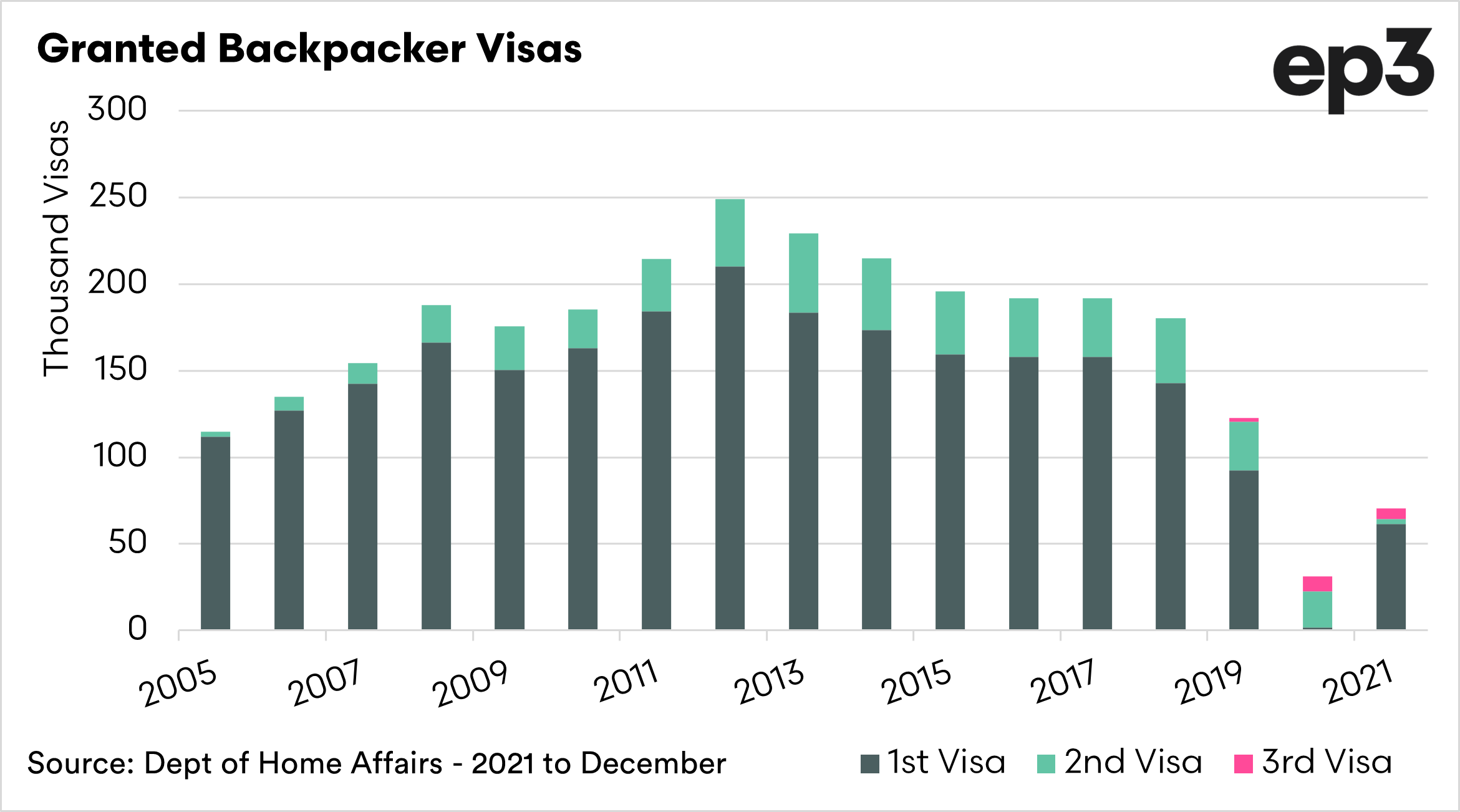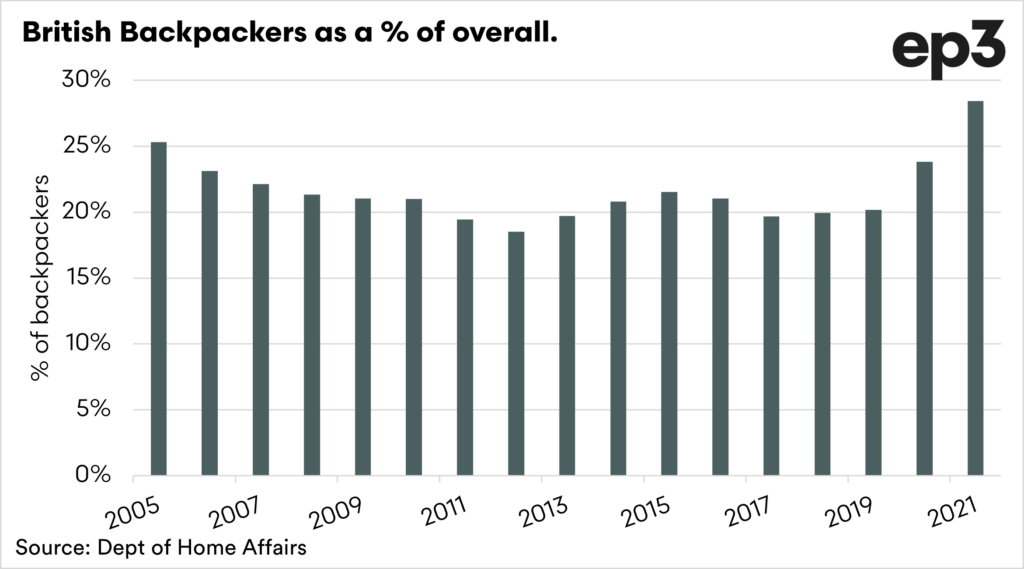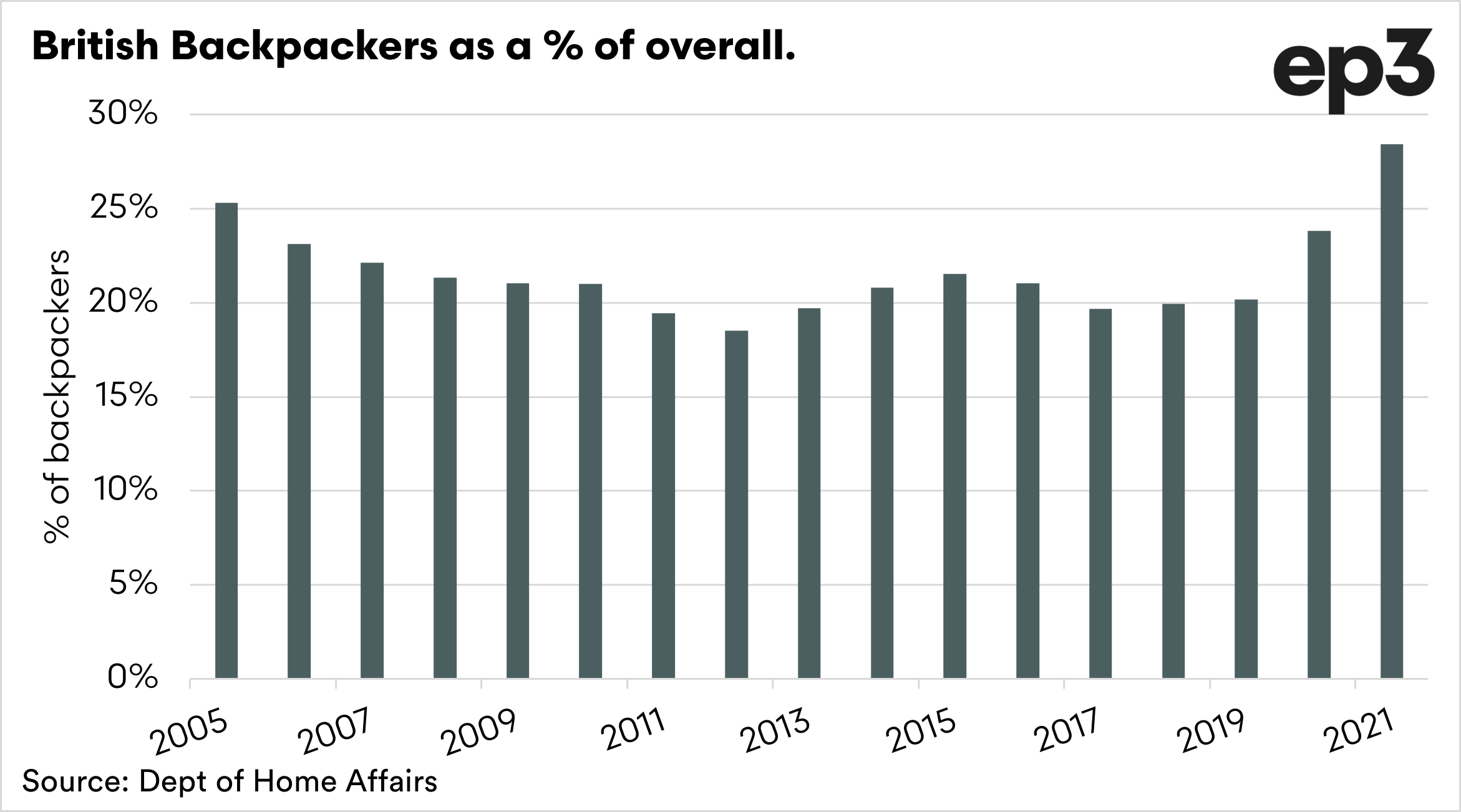Labour Pains

The Snapshot
- Unemployment in some of the major economies is at low levels.
- The domestic labour pool within Australia is limited.
- Backpacker numbers have been low in recent years.
- The new free trade agreement with Britain removes the need for British backpackers to conduct a stint in rural areas to get a 2nd year visa.
- Labour costs are likely to remain expensive.
The Detail
Getting staff is an absolute nightmare. It doesn’t matter what part of the supply chain you are in; from farm to fork, it is extremely hard.
The first chart shows the unemployment rate for some of the major economies. It’s low. It’s really at the point that most that want a job have one.
So as an industry, we are competing with a very small pool of labour, and supply and demand economics works exactly the same way as any other commodity. If the labour supply is low, then the cost of hiring goes up.
One of the biggest sources of regional labour is access to backpackers. These staff have also been in short supply in recent years.
The lockdown of Australia caused a large gap in availability, which can be seen in the chart below. In 2020, there were almost no new backpackers, with largely only those staying on for 2nd or 3rd visas being available.
It may take a while before backpacker availability reaches pre-covid levels, as potential backpackers take jobs in their home countries, and the concerns about the economy reduce the capacity to take the ‘risk’ of travelling around the world.
There is another risk to backpacker availability looming over.
The rural element of the backpacker visa provided regional areas with farm and hospitality workers in exchange for them completing a stint in the country.
The new UK-Australia free trade agreement removes British backpackers’ requirement to complete their rural stint. This agreement is expected to come into effect in 2024.
The British are one of the largest populations of backpackers in Australia, and in the future they will not be required to complete this rural stint.
I am sure there will still be many who would still like to experience that is working and living in rural areas. However, many will be attracted to the blue water and white sands on the coasts – where there is also ample opportunities to work (and party).
Farm labour is an input, it is a cost. Much like diesel, glyphosate or fertilizer. I expect that labour will continue to be expensive and difficult to procure input in summary due to the following:
- Lack of available domestic labour.
- Lack of backpackers.
- A diminished pool of British backpackers.

